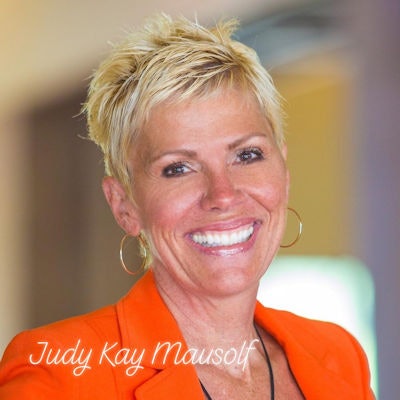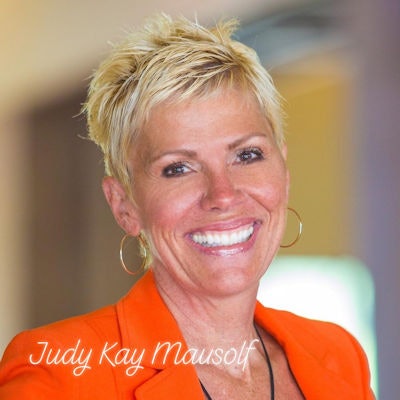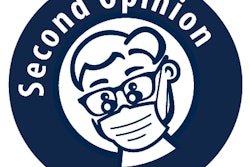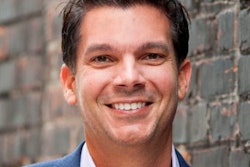
If you know anything about Judy Kay Mausolf, you know that she is one of the leading consultant voices in the dental industry when it comes to communication.
 Judy Kay Mausolf.
Judy Kay Mausolf.In these days when practices are starting to formulate and home in on their strategies to open their practices again, we thought it was important to get Mausolf's opinion on best practices when communicating with patients and each other. Now more than ever, dental practices have to make sure everyone is on the same page and feeling confident in what lies ahead.
With that in mind, here are five questions with the answers from Mausolf. If you would like more information from her, we also have an exclusive chat with her on video.
Q: What's one of the biggest communication tips you would give to dentists right now regarding their patients?
A: Well, it's really important that we don't go dark. It's really important that we stay in the loop with patients. They need to feel confident that we're there for them. Most practices have electronic communication capabilities, and that's a great way to communicate with your patients. Find out what's the patient's favorite way to communicate electronically. It might be text or it might be email. With today's technology, it's like George Jetson and a one-button push. You can send out a "Hey, just letting you know we're here, we're thinking about you, and we hope you're doing well." And even maybe a little video of what you're doing in your office to make sure that, when the patients come back, they're going to be safe. I would say you could pop a short piece of communication to your patients, maybe twice a week, to update them on what's happening. I think that's key.
Q: You talked about electronic communication, but what about a phone call?
A: I'm from the old days where a phone call still trumps everything else. I think it's really important we make the time to call, whether it be the doctor or a team member. Continue to have that conversation so you know where the patient is at, mentally and even financially.
I think having that ongoing conversation and having team members reach out and call, especially for those patients where their appointments were changed, is very important. When you think about it, it takes a couple of weeks, that's not really that many patients to call and check in with them. Add that with the texting or communication we discussed, and you're really front of mind with your patients. I think that's key.
Q: You mentioned safety earlier. Is part of that communication being honest about what we've all been through with COVID-19 and the steps that are being taken to protect patients?
A: I think that is going to be key to the weeks ahead, by helping lessen the patient's fear because there is fear. There are different levels of fear from person to person, but we have to make sure that our patients feel really safe. You know I've always talked about delivering world class service and about making patients feel comfortable and making them feel welcome. And now it's even more important than ever to make them feel safe. And if we can do any of that communication online well ahead of the appointment, that's huge as well.
Q: I've heard you say that delivering that amazing experience means having somebody who is answering our phones right now.
A: It's so important. Our patients are not only really grateful to feel connected but they are also glad to know someone is really there and can answer some of their concerns.
Some of those concerns revolve around money, from the patient perspective but also from the dentist perspective. I think we all have this financial burden. Many people are "doing the turtle" and pulling in by not spending any money. Dental practices have been doing that by not paying someone to answer the phone. To me, that's saving pennies when we're losing thousands of dollars because we don't have someone there to man the phones. We don't have someone there to take care of our patients. Having a couple of patients in the queue for treatment when you come back more than makes up for the payment for the person answering the phone. Even if it's a month of salary, it's probably pretty well taken care of by what you're getting in return.
You know there are patients who need treatment. By being open, at least through the phone, you're building that trust and that loyalty.
I have seen emails from dental practices saying they are closed, and that's all patients see. They only see "we're closed" because most people don't read past the second line to see that someone is manning the phone. If it were me, I would change that communication to say, "We're here" or "We're here and available if you have an emergency." When you say we're closed, it's like, "OK, they're done." Of course, you're not, but that's what that messaging implies.
Q: What's your message when it comes to the doctor-team relationship and communication within the practice right now?
A: As doctors, the team may not understand all your decisions. And it's not that they have to know all the things that you're doing, but it's important to let them know that your prime objective is to make sure there's a practice they can come back to. Therefore, your focus is on making sure that the patients have somewhere they can go and the team has somewhere they can work. So, short term, some of your decisions may not seem that team-friendly or that helpful, because it may feel a little tough. Long term, however, it's going to make a much better situation for everybody. Because the goal for everyone should be to be back in business, to be able to support everybody, and to take care of patients.
Judy Kay Mausolf is a speaker, author, and dental practice culture specialist with expertise in helping others get happier and more successful. She is past president of the National Speakers Association Minnesota Chapter, a member of the National Speakers Association, Academy of Dental Management Consultants, and director of sponsoring partners for the Speaking Consulting Network. Learn more about her.
The comments and observations expressed herein do not necessarily reflect the opinions of DrBicuspid.com, nor should they be construed as an endorsement or admonishment of any particular idea, vendor, or organization.



















